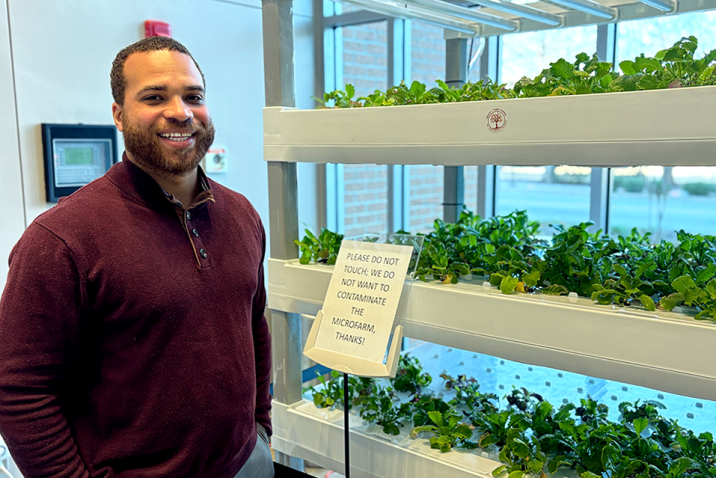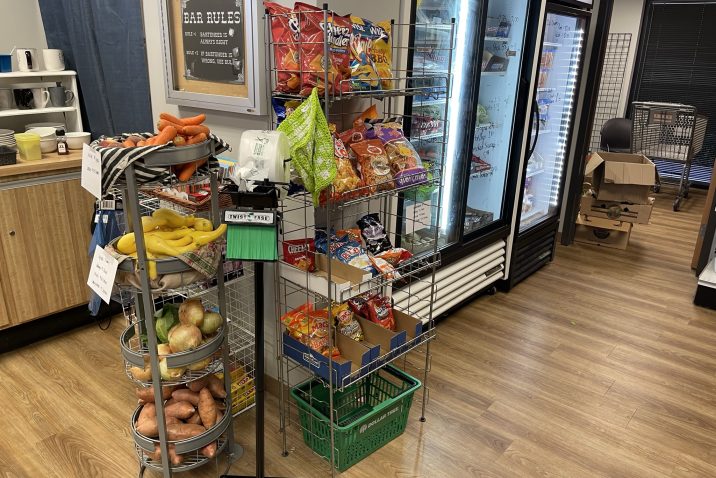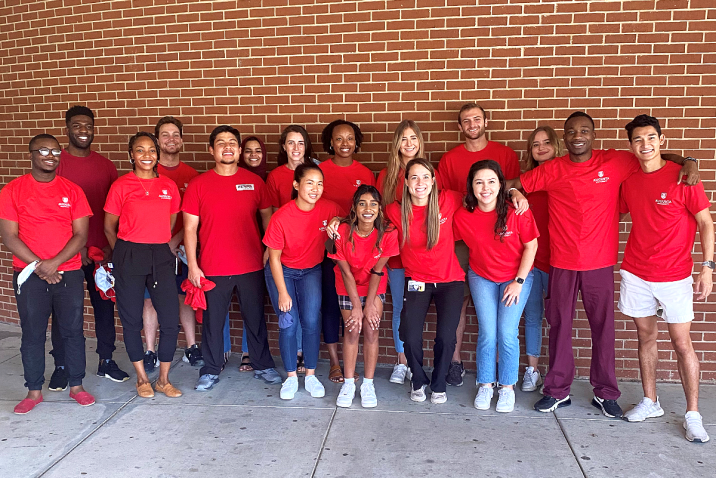A healthier Augusta, one micro-farm and rooftop garden at a time
"My ultimate goal is to have micro-farms and community gardens throughout the South and Southeast," says Malcolm Bevel, PhD.

Giving up smoking, eating better and exercising can improve overall health — these simple steps can also make it less likely someone will develop cancer.
Each member of the Cancer Prevention, Control & Population Health Program reaches out to community organizations, schools and other civic groups to promote the importance of prevention, early detection and regular screenings and particularly in addressing cancer health disparities and health equity. Community outreach and engagement is the foundation of the program and the team consults with community leaders to stay current with the populations they represent and to maintain open channels of communication on a variety of topics.
As part of our research in this area, the Georgia Cancer Center has partnered with Augusta Mayor Hardie Davis for the Augusta Fit Families program through the United States Conference of Mayors and the American Beverage Foundation for a healthy America for childhood obesity prevention.

Cancer Prevention and Population Health
CPPH research aims to promote health behaviors that prevent or lessen the risk of cancer occurrence. It identifies the causes of disparities in cancer and seeks to facilitate population health among all, yet particularly in vulnerable and underserved communities that experience cancer health disparities. CPPH includes precision prevention and promotes early detection though adherence to cancer screening guidelines. Research priorities address key factors across the cancer control continuum from prevention to end of life. These priorities include health behavioral research and cancer control interventions that develop and test approaches in tobacco control, dietary patterns, physical activity, health communication and literacy, and other related activities.

Translational Cancer Research
We are committed to reducing cancer incidence and mortality and improving survival and quality of life for cancer patients. Findings from our population health and health services research inform the development of new programs and new approaches to service delivery for prevention, diagnosis, and treatment of cancer. Our program focuses on “T2” through “T4” of the Clinical and Translational Research Spectrum, which includes: 1) testing population-based interventions in controlled environments to determine efficacy and form the basis for clinical application and evidence-based guidelines; 2) exploring ways of applying current health recommendations or guidelines, and determining appropriate methods for dissemination, communication, and implementation of health services; and 3) studying factors and interventions through population-level outcome studies which identify social determinants of health and ultimately results in improved global health.

Community-Based Participatory Research (CBPR)
Community-Based Participatory Research (CBPR) is a collaborative approach taken by researchers and community members alike in order to highlight health disparities in underserved populations. Scientists and community members are equal partners in the planning, implementation, and evaluation of community-level interventions that combat diseases such as obesity and cancer. Also, CBPR emphasizes cultural competency when designing interventions tailored to various racial/ethnic/gender groups. Our commitment to reducing cancer disparities includes the utilization of the CBPR approach on several projects including c-CARE 2, CHANGE, Living My Breast Life, and community gardening focus groups among African Americans.

Cancer Epidemiology
Cancer epidemiology focuses on the biological origins and pathological and clinical aspects of cancer and identifying the major risk factors for various forms of cancer. By conducting epidemiological research, the “basic science” of public health, we can describe the health status of a population, help in understanding the etiology of cancer. Additionally, we provide evidence-based strategies for health care and policy makers, aid in developing new approaches to effectively treat or mitigate cancer burden, and ultimately control and prevent cancer morbidity and mortality.
Cancer Prevention, Control & Population Health
Health Sciences Campus
GCC - M. Bert Storey Research Building
(706) 721-3584


Martha S. Tingen, PhD, RN, FAAN


Marlo Michelle Vernon PhD, MPH

"My ultimate goal is to have micro-farms and community gardens throughout the South and Southeast," says Malcolm Bevel, PhD.

"At Peabody, residents wanted to increase their access to fresh fruits and vegetables," said Dr. Marlo Vernon. "We know eating fresh fruits and vegetables reduces cancer risk; they also help reduce obesity, which is a cancer risk."

The partnership, which celebrated its conclusion May 12 with a field day, began in October 2019.

Dr. Justin Xavier Moore has been recognized with an American Association for Cancer Research Minorities in Cancer Research award.
The Georgia Cancer Center at Augusta University is dedicated to reducing the burden of cancer in Georgia and across the globe through superior care, innovation, and education. Through unprecedented expansion, the Georgia Cancer Center is providing access to more first-in-the-nation clinical trials, world-renowned experts and life-saving options.
Follow the Georgia Cancer Center